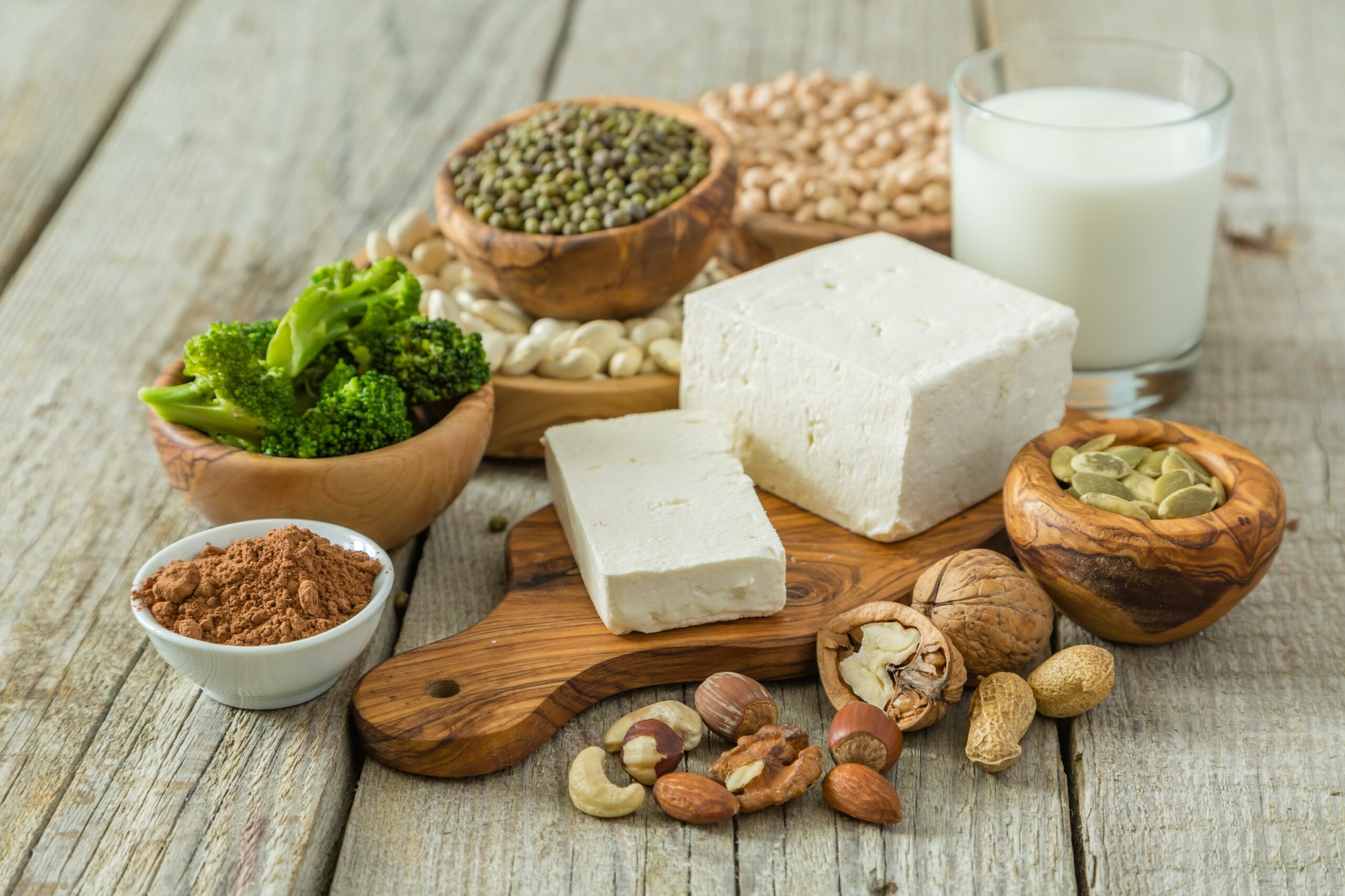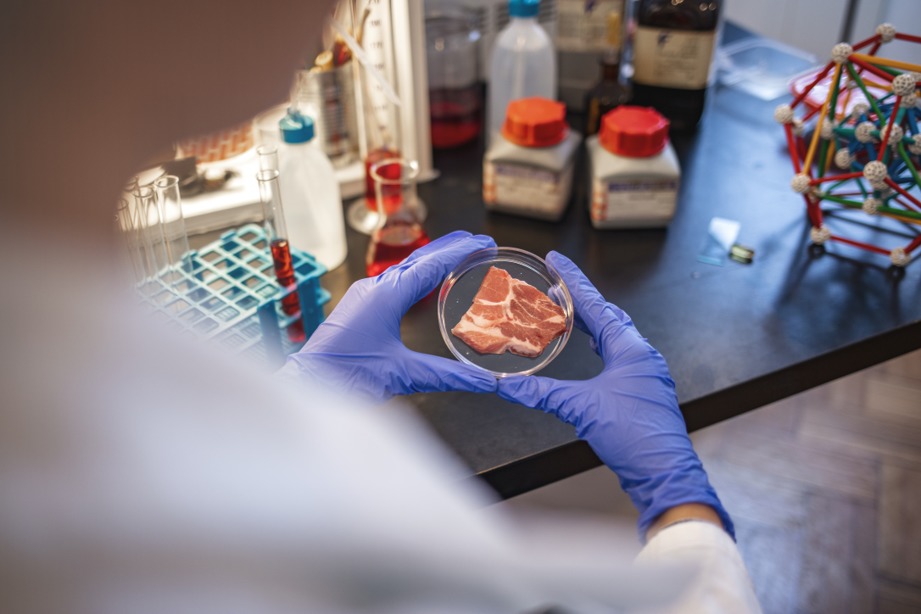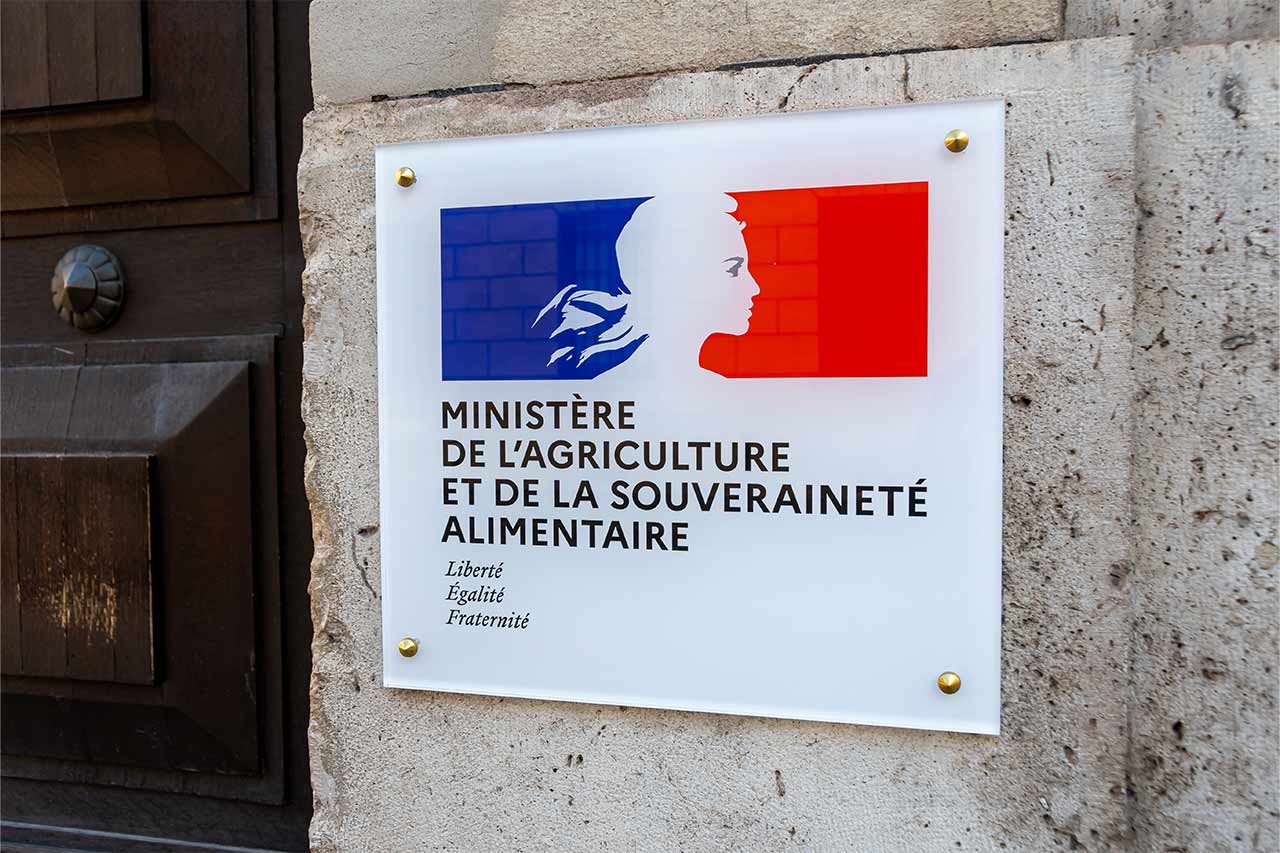The benefits of plant-based proteins for the environment and human health
When integrated into crop rotations, plant-based proteins limit the use of inputs, leading to savings for the farmer and a lower environmental impact.
The use of nitrogen fertilizers has two main consequences:
- The acceleration of global warming, because nitrous oxide, released by nitrogen fertilizers, has a warming power approximately 300 times greater than that of CO2
- The eutrophication of water, which leads to the proliferation of green algae, which has a strong impact on water quality and biodiversity
Pulses have a unique capacity in the plant kingdom: thanks to a symbiosis with bacteria at their roots, the rhizobiums, they are able to capture the nitrogen contained in the air (between 40 and 48 Mt of nitrogen per year are fixed by agricultural crops). Therefore, they do not require the use of nitrogen fertilizers and even return some to the soil after their cycle. Integrated in crop rotations, plant-based proteins limit the use of inputs, leading to savings for the farmer, as well as a lower environmental impact.
France is currently very dependent on foreign soybeans for animal nutrition: 90% is imported, 60% of which comes from Brazil. In addition to avoiding price volatility and reducing the carbon footprint of imported soybeans, the development of plant-based proteins on our territory would contribute to our food sovereignty.
Read also: How to ensure France’s food sovereignty?
Finally, from a nutritional point of view, the human consumption of legumes is encouraged by the French public authorities, at a rate of two portions per week. This is mainly due to their fiber content which limits the absorption of sugars and fats by the body, thus playing a role in the prevention of cardiovascular diseases and diabetes. A link has also been demonstrated between the consumption of fiber and the reduction of the risk of colorectal cancer. However, legumes must be mixed with cereals in order to provide all the essential amino acids. It should be noted that the risks of protein deficiency mainly concern individuals who do not eat enough to cover their energy needs (about 2350 kcal/day for a middle-aged adult) or who have particular pathologies. Moreover, the daily protein intake of the French is higher than recommended: a middle-aged adult in France consumes about 1.1 g/kg body weight of protein per day for a requirement of 0.83 g.
The future challenges for massifying the deployment of plant-based proteins in France
Despite the many reasons to encourage the development of plant-based proteins, they still represent a small share of French field crops with little diversity (18% of crops, including 15% of soybeans). In order to massively deploy them, there are still many obstacles to overcome at all levels of the value chain:
- Research and development: in France, soybeans are mainly grown because of their good digestibility and high protein content. Used in feed, it allows higher yields compared to most other plant-based proteins. The challenge is therefore to improve the nutritional quality of these proteins, without making them GMOs, in order to promote their consumption in animal nutrition.
- Production: greater integration of plant-based protein in crop rotations would increase the number of hectares cultivated. Supporting producers in identifying the appropriate rhizobium according to the species cultivated and the physico-chemical parameters of the environment would encourage their deployment.
- Processing: the main obstacle to the human consumption of legumes is the preparation time, requiring up to 12 hours of soaking and 1 hour of cooking. It is therefore necessary to support innovation in the food industry in order to produce foodstuffs that are easy to consume.
Regarding human food, public policies can play a major role. Indeed, the major challenge to increase the production of plant-based proteins is to integrate them into the eating habits of the French people, whose consumption is almost 4 times lower than the world average. Education is a major lever for this, particularly via school canteens which serve 1.1 billion meals per year.
Learn more about the challenges and the market for plant proteins >
However, given the recent interest in plant-based proteins, the French sectors still lack structure. Their competitiveness could be improved by bringing together the players, improving market knowledge and deploying processing sectors that are currently too concentrated.
Public policies have taken control of the issue, creating local and national opportunities
With the latest Protein Plan, launched in 2020, the Government has shown its support for the deployment of legumes in France. An envelope of 100 million euros over 2 years, i.e. 10% of the total budget dedicated to the agricultural sector, is dedicated to the “National Strategy on Plant-based Proteins”. This translates into regular calls related to this theme.
Some Territorial Food Projects also aim to increase the production and consumption of legumes. For example, the local public agricultural education and training establishment (ELEFPA) of Quetigny-Plombières-lès-Dijon, in Bourgogne-Franche-Comté, has a project to develop and make available skills and tools to promote the use of legumes in human nutrition. The Communauté d’Agglomération Bergeracoise, in Nouvelle-Aquitaine, aims to support farmers in adapting their production, in particular by mapping the areas that can be used for growing pulses.
The general public is also asking for a reintroduction of legumes in France. At the Citizen’s Climate Convention, plant-based proteins were cited as a lever for reducing greenhouse gases, improving soil quality and human health by 2040.
Plant proteins have many benefits for human health, for the environment and for limiting the effects of climate change. They are also a key element of French food sovereignty. However, many obstacles remain concerning their massive deployment. To remove them, levers exist through all the actors of the value chain, but also through public policies. Alcimed can support you in your projects related to plant-based proteins, do not hesitate to contact our team!
About the author,
Elody, Consultant in the Innovation and Public Policy team of Alcimed in France



